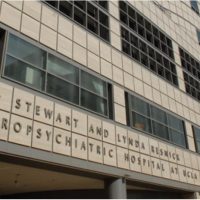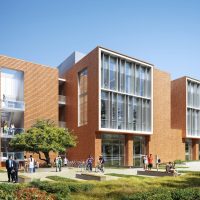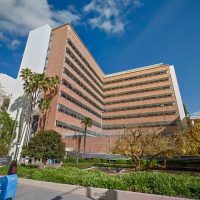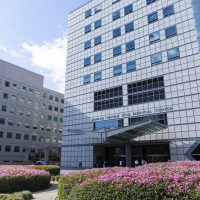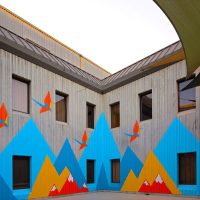Michael Gandal, MD, PhD

Assistant Professor-in-Residence
- Neuroscience Research Building (NRB)
- Email: mgandal@mednet.ucla.edu
- Website
- Lab Website
- Pubmed
biography
Dr. Michael Gandal is an Assistant Professor-in-Residence in the Departments of Psychiatry and Human Genetics at UCLA and the Semel Institute for Neuroscience and Human Behavior. Dr. Gandal runs a neurogenetics research laboratory and is co-Director of the Genetics, Genomics, and Informatics Core within the Intellectual and Developmental Disabilities Research Center (IDDRC). He received his BS in Engineering (biomedical computation) from Stanford University and his MD/PhD in Bioengineering from the University of Pennsylvania, using electrophysiology to investigate neural circuit dysfunction in mouse models of schizophrenia and autism. He completed his residency training in Psychiatry at UCLA and a postdoctoral fellowship in neurogenetics in the lab of Dr. Dan Geschwind, characterizing the genetic contributions to shared gene expression alterations in human brain across several major psychiatric disorders. Dr. Gandal joined the faculty at UCLA in 2017.
Education
- 2006 – Stanford University, BS
- 2013 – University of Pennsylvania, MD/PhD
- 2017 – UCLA, Residency in Psychiatry
Research & clinical interests
Trained in adult psychiatry and neurogenetics, Dr. Gandal specializes in treating neurodevelopmental, psychiatric disorders in adolescence and adulthood. The Gandal laboratory employs systems-level, multi-omic approaches using human brain samples to investigate the biological mechanisms underlying genetic risk for neurodevelopmental and psychiatric disorders, including autism, schizophrenia, and bipolar disorder. In addition, through CART, Dr. Gandal directs a proof-of-principle clinical study investigating the role of neural-immune activation on cognitive and behavioral symptoms in adults with ASD. Dr. Gandal has published more than 50 scientific articles and chapters on the neurobiology and genetics of psychiatric disorders, and his work has recently been published in leading scientific journals including Nature, Science, and Cell. Dr. Gandal’s research was independently recognized as among the top 10 autism studies in 2018 by both Autism Speaks and Spectrum, and his work has been featured on national news outlets including CNN, NPR, and the Washington Post.



